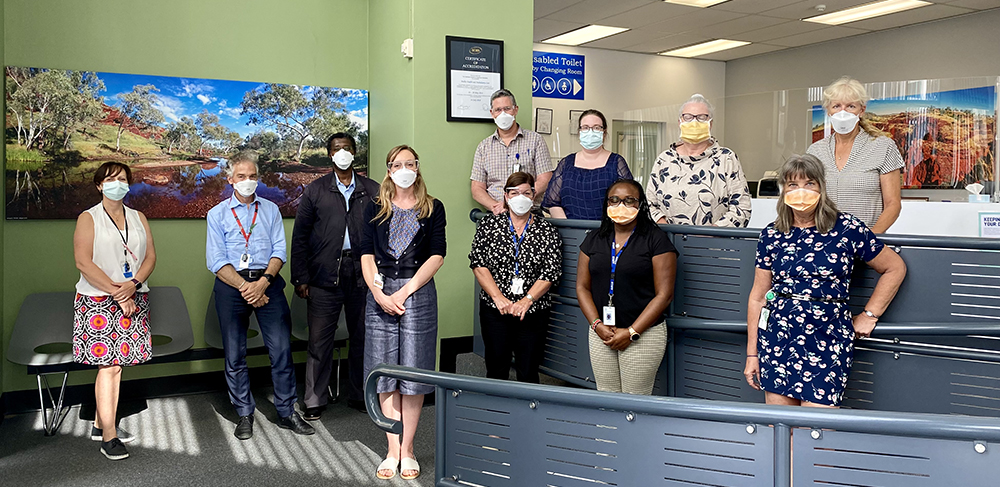World Tuberculosis Day 2022
 Public Health staff at Anita Clayton Centre
Public Health staff at Anita Clayton Centre
Whilst we are in the throws of the most disruptive moment that most of us can remember in our lifetime, it seems perplexing that a disease rarely spoken of in Australia remains the greatest major global pandemic of all time.
Tuberculosis, commonly known as ‘TB’, is a bacterial respiratory infection that is transmitted from person to person through the air.
TB has caused many more deaths than COVID; worldwide on average 11 million new cases are diagnosed each year and 1.5 million people died from TB in 2020 alone. The ABC reports (external site) that “Resources have been stripped from the global TB fight to deal with the pandemic at hand, which experts say could cause a balloon in missed diagnoses and treatment in the years to come.”
According to the World Health Organisation, due to symptoms which can remain mild for many months and which are common amongst childhood ailments, tragically TB is difficult to diagnose and health providers often overlook it in children and adolescents.
Whilst equatorial and developing countries such as Indonesia, the Philippines, Bangladesh and Nigeria remain some of the highest caseloads, TB is still present in Australia. However it remains under control here because have a well-resourced and dedicated program managing it.
The WA TB Control Program (TBCP) is operated out of the Public Health department and lead by Dr Justin Waring, Medical Director of the WA Tuberculosis Program. It is a dedicated service of the WA Department of Health that ensures that TB patients are treated (TB is curable with specialised antibiotics). The TBCP routinely undertakes contact tracing of people identified as having significant contact with a diagnosed person and those close-contacts are screened and treated, if necessary, to prevent further cases.
If a person receives a letter from the TBCP identifying them as a close-contact, a simple blood test is the next step. If the result is positive, it usually does not mean the person has active TB, rather that they have a dormant infection. This infection can be treated to stop it ever causing TB or spreading further. The TBCP provides this service entirely free of charge.
On this World Tuberculosis Day 24 March 2022, we extend our gratitude to MHPHDS’s TBCP for the hard work they do to keep ‘the greatest pandemic of all time’ at bay for most Western Australians.

